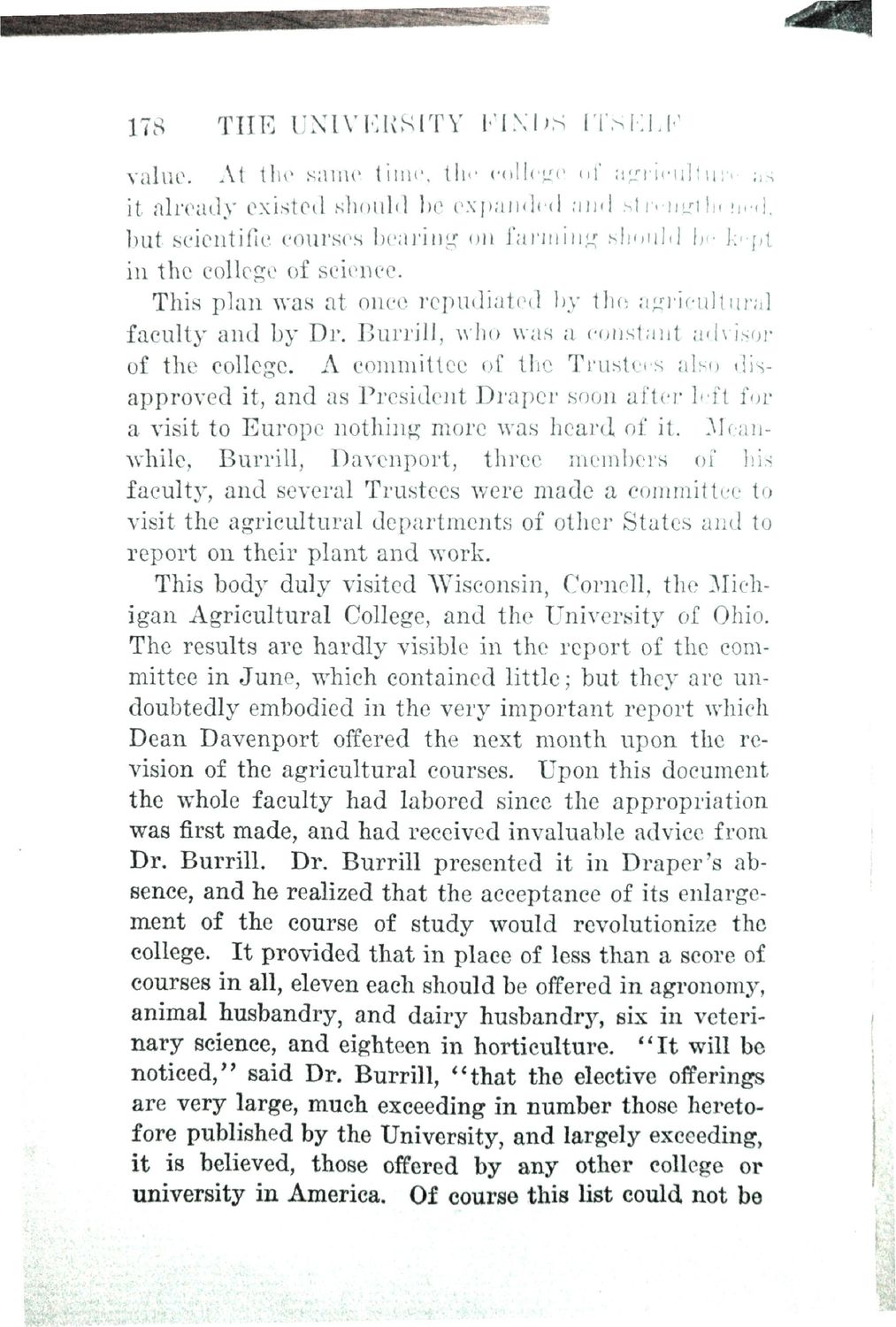| |
| |
Caption: Book - History of the University (Nevins)
This is a reduced-resolution page image for fast online browsing.

EXTRACTED TEXT FROM PAGE:
178 THE UNIVERSITY FINDS ITSELF value. At the same time, the college of agriculture as it already existed should be expanded and strengthened, but scientific courses bearing on farming should be kept in the college of science. This plan was at once repudiated by the agricultural faculty and by Dr. Burrill, who was a constant advisor of the college. A committee of the Trustees also disapproved it, and as President Draper soon after left for a visit to Europe nothing more was heard, of it. Meanwhile, Burrill, Davenport, three members of his faculty, and several Trustees were made a committee to visit the agricultural departments of other States and to report on their plant and work. This body duly visited Wisconsin, Cornell, the Michigan Agricultural College, and the University of Ohio. The results are hardly visible in the report of the committee in June, which contained little; but they are undoubtedly embodied in the very important report which Dean Davenport offered the next month upon the revision of the agricultural courses. Upon this document the whole faculty had labored since the appropriation was first made, and had received invaluable advice from Dr. BurrilL^Dr. Burrill presented it in Draper's absence, and he realized that the acceptance of its enlargement of the course of study would revolutionize the college. It provided that in place of less than a score of courses in all, eleven each should be offered in agronomy, animal husbandry, and dairy husbandry, six in veterinary science, and eighteen in horticulturevM'*It will be noticed/\ said Dr. Burrill, "that the elective offerings are very large, much exceeding in number those heretofore published by the University, and largely exceeding, it is believed, those offered by any other college or university in America. Of course this list could not be
| |